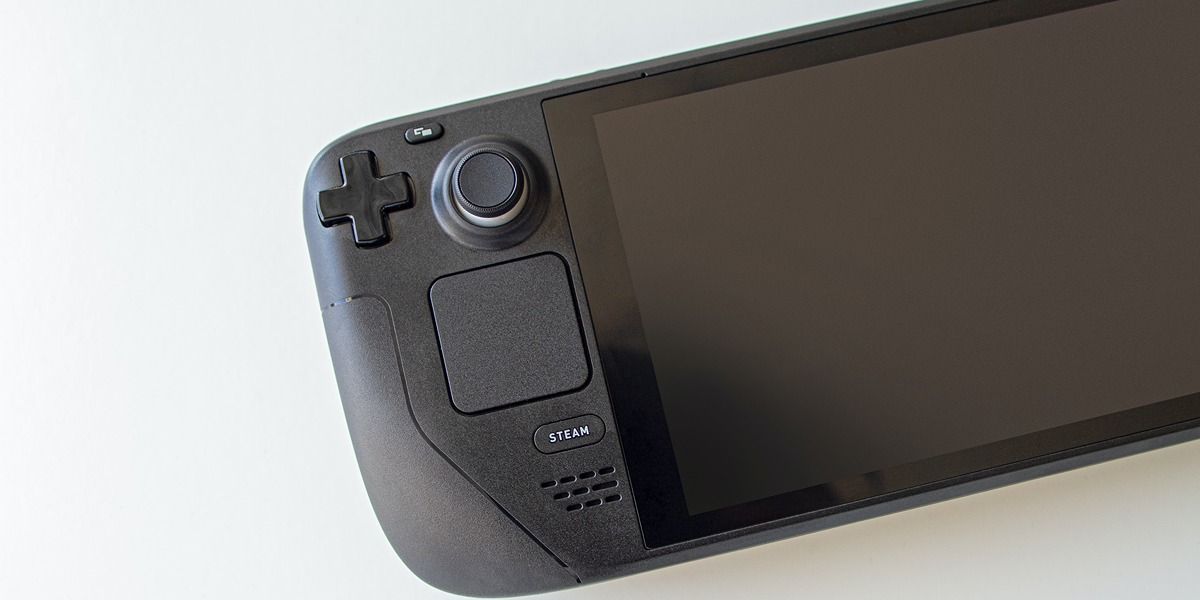
ASUS ROG Ally Vs. Steam Deck: Comparative Analysis

ASUS ROG Ally Vs. Steam Deck: Comparative Analysis
The ASUS ROG Ally and Valve’s Steam Deck currently dominate the market for handheld gaming computers. Both devices output great graphics and run their ported games phenomenally.
But they do differ when it comes to performance specs, display quality, battery life, and price. So, which device manages to ace at the metrics that you’re looking for in a gaming handheld?
To help you decide, here is a detailed comparison of the key features of both devices, along with our verdict on which device is better on paper:
ASUS ROG Ally vs. Steam Deck: Performance

In terms of performance, the ASUS ROG Ally boasts a big advantage over the Steam Deck. It comes packed with an AMD Ryzen Z1 Extreme with eight cores and 16 threads.
The higher core and thread count means it can compute a lot of data quickly and handle multitasking well. This translates to better game performance.
The Steam Deck, on the other hand, rocks an AMD Zen 2 with four cores and eight threads. So it falls a little behind in computing power.
The ASUS ROG Ally also features a 2.7GHz GPU clock speed compared to Steam Deck’s GPU clock speed of 1.6GHz. The clock speed of a GPU signifies how much computing power it can output for graphics rendering.
Simply put, the higher clock speed of the ASUS ROG Ally helps it offer better graphics, especially when it comes to high-performance games. But that doesn’t mean the Steam Deck can’t run high-end games. In fact, you can optimize your Steam Deck to run demanding games better.
ASUS ROG Ally vs. Steam Deck: Display

Both the ASUS ROG Ally and the Steam Deck feature a seven-inch display. But ASUS’s offering boasts a 1920x1080 resolution, compared to the 1280x800 panel on the Steam Deck. The higher resolution of the ROG Ally means sharper graphics for your game.
The frame rate of a display determines how many images per second are shown on your screen. A higher frame rate allows for a smoother gaming experience. The Ally wins when it comes to frame rates too, with a 120Hz panel. This is twice as fast as Steam Deck’s 60Hz panel.
ASUS ROG Ally vs. Steam Deck: OS and Game Libraries

Image Credit: ROG Global/YouTube
The ASUS ROG Ally utilizes a Windows 11 operating system. This allows you to run all the games, mods, and software that are compatible with the OS. Simply put, you can do anything on the ASUS ROG Ally that a regular PC will allow.
This OS on the Ally also grants you access to all the game launchers, such as Steam, Epic Games, GOG Galaxy, and Battle.net. As a result, the Ally offers you more games to play.
On the other hand, the Steam Deck comes with a proprietary Linux-based SteamOS. Unlike Windows 11 on the ASUS ROG Ally, SteamOS is specifically designed for touch control for superior user-friendliness.
The SteamOS is intended to only run the Steam game launcher and Itch.io games. Furthermore, not all Steam games are playable, and you can only run the limited, yet growing, library of games that Steam officially ports to the Deck.
Other game launchers and OS are installable on the Deck, but the procedure requires extensive technical knowledge. This, combined with the Deck’s tailored OS experience, is why most people choose to stick with Linux on the Steam Deck .
ASUS ROG Ally vs. Steam Deck: Battery Life
ASUS ROG Ally and Steam Deck both have a large 40WHr battery. But, the power consumption of both devices is not the same.
Since the ASUS ROG Ally has better specs, it requires more power to function. ASUS claims the Ally can offer anywhere between 1.5 and three hours of battery life depending on the mode you run it at. So, the Steam Deck wins here with its two-to-eight-hour battery life.
ASUS ROG Ally vs. Steam Deck: Storage Capacity
The Steam Deck allows you to choose from various storage options. You can opt for the 64 GB eMMC variant. eMMC is a storage device that is just a bit slower than an SSD, making it a viable option for gaming.
Steam Deck also comes in a 256 GB SSD and 512 GB SSD version, both using PCIe 3.0 interface.
In comparison, ASUS ROG Ally only comes in a 512GB SSD storage version using a PCIe 4.0 interface. PCIe 4.0 and 3.0 are both serial expansion bus standards, with PCIe 4.0 being the more advanced and faster of the two. On paper, this means that ASUS ROG Ally provides faster loading times for games.
ASUS ROG Ally vs. Steam Deck: Design and Aesthetics

The design of the ASUS ROG Ally is pretty innovative with sleek corners, and a good control layout. It has two grip buttons and a nice D-pad that is easy to use alongside other standard buttons and thumbsticks. Plus, it has a pretty quiet fan profile, so there won’t be too much noise while you play.
But the biggest advantage of the ASUS ROG Ally in terms of design is its smaller size and lesser weight compared to the Steam Deck. This makes it more portable without compromising on screen size.
The Steam Deck, on the other hand, comes equipped with four grip buttons. Plus, it has two trackpads on each side of the screen. These can be really helpful in navigating menus and aiming. The Deck’s controls are also angled better, allowing the user to put their hands in a more relaxed position.
ASUS ROG Ally vs. Steam Deck: Additional Features

 FX PRO (Gold Robot + Silver Robot(Basic Package))
FX PRO (Gold Robot + Silver Robot(Basic Package))
Image Credit: ROG Global/YouTube
The ASUS ROG Ally offers various added features that give it a steep edge over the Steam Deck. These include support for Wi-Fi 6E which provides faster download and upload speeds, compared to Steam Deck’s Wi-Fi 5.
Plus, ASUS’s handheld comes with a UHS-II microSD slot to get faster data transfer speeds. In comparison, the Steam Deck has a slower UHS-I microSD card slot. The Ally also features Bluetooth 5.2, which is faster than the Bluetooth 5 that Steam Deck utilizes.
Additionally, it comes equipped with a fingerprint lock sensor for better security and accessibility. You can even connect an external GPU to the ASUS ROG Ally since it boasts an XG connector for ROG XG GPU enclosures.
ASUS ROG Ally vs. Steam Deck: Price
As far as the dollar signs go, Steam Deck is the cheaper option by a long shot. You can get the 64GB version for just $399. The 256GB model will set you back $529, and the 512GB variant costs $649.
On the other hand, the ASUS ROG Ally is priced at $699, a full $50 more than the full-option Deck. It’s worth noting that there is a non-Z1 Extreme model coming later in 2023 that will retail at $599. Interestingly, Valve offers microSD card support on all Steam Decks. So, you can always just use expandable storage on the base variant of the handheld to save money, albeit at the expense of slightly lower loading speeds.
The ASUS ROG Ally Has the Clear Upper Hand
- The ASUS ROG Ally has a clear advantage over the Steam Deck in terms of performance specs, offering better computing power and graphics rendering capabilities.
- When it comes to display, the ASUS ROG Ally wins with a higher resolution and a faster frame rate, resulting in sharper graphics and a smoother gaming experience.
- The ASUS ROG Ally also comes out on top in terms of OS and game libraries, as it runs on Windows 11 and supports a wide range of game launchers, giving users access to more games. On the other hand, the Steam Deck’s SteamOS focuses on running Steam games and requires additional research to use different OSs.
The ASUS ROG Ally definitely takes the cake when it comes to being better than Valve’s Steam Deck on paper. It boasts much better specs, superior features, a larger game library, better portability, and a top-notch display.
But the Steam Deck isn’t too far behind with its smoother OS, optimized game ports, lower price, superior controls, and better battery life. This battery life can further be extended by taking care of a few small things.
- Title: ASUS ROG Ally Vs. Steam Deck: Comparative Analysis
- Author: William
- Created at : 2024-08-27 17:00:52
- Updated at : 2024-08-28 17:00:52
- Link: https://games-able.techidaily.com/asus-rog-ally-vs-steam-deck-comparative-analysis/
- License: This work is licensed under CC BY-NC-SA 4.0.
 Any DRM Removal for Mac: Remove DRM from Adobe, Kindle, Sony eReader, Kobo, etc, read your ebooks anywhere.
Any DRM Removal for Mac: Remove DRM from Adobe, Kindle, Sony eReader, Kobo, etc, read your ebooks anywhere.

